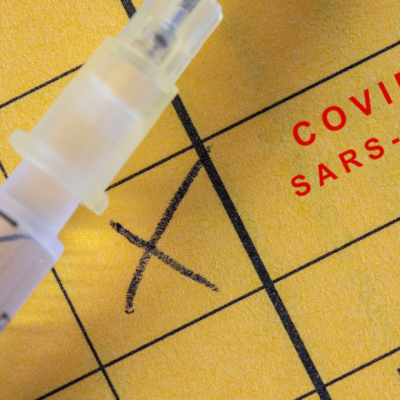A new study confirms that the COVID-19 vaccine can affect menstruation in women. According to the Oregon Health & Science University (OHSU), the vaccine can cause a slight delay in the onset of periods in women. On average, vaccinated women experience their periods one day later than unvaccinated women. However, the duration of menstruation is not affected by the vaccine. The side effect is not considered critical and is expected to be temporary, according to the scientists. The study, published in the Obstetrics & Gynecology journal, is based on anonymized data from women aged 18 to 45 who used a fertility tracking app. The participants did not report using any hormonal contraception. Of the 2,400 participants who were vaccinated, most received the Pfizer/BioNTech vaccine (55%), followed by Moderna (35%) and Johnson & Johnson (7%). The control group consisted of 1,500 app users who had not been vaccinated against COVID-19.
The researchers analyzed three consecutive menstrual cycles before, during, and after vaccination in the vaccinated group, and six consecutive cycles in the control group. The analysis showed that the cycle duration increased by an average of 0.64 days after the first vaccine dose and 0.79 days after the second dose. However, the slight extension of the menstrual cycle is not considered significant from a medical perspective. The lead author of the study, Alison Edelman, described the result as “very reassuring.” Women who noticed changes in their menstrual cycle after vaccination also confirmed the findings. The National Institute of Child Health and Human Development (NICHD) stated in a press release that the results could help dispel misinformation circulating on the internet. The International Federation of Gynecology and Obstetrics (FIGO) considers changes in the period of less than eight days as normal.
In conclusion, the study provides valuable information on the effects of the COVID-19 vaccine on menstruation in women. The slight delay in the onset of periods is not considered significant, and the side effect is expected to be temporary. The findings could help dispel misinformation and reassure women who may have concerns about the vaccine’s impact on their menstrual cycle.










